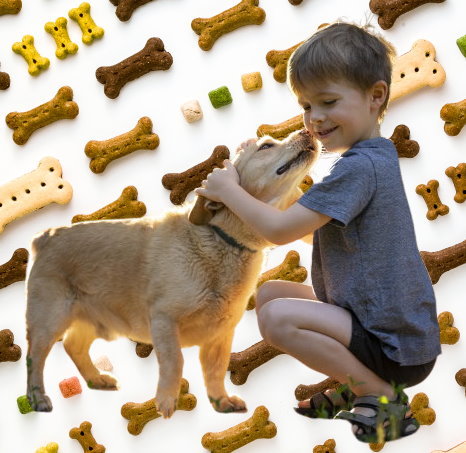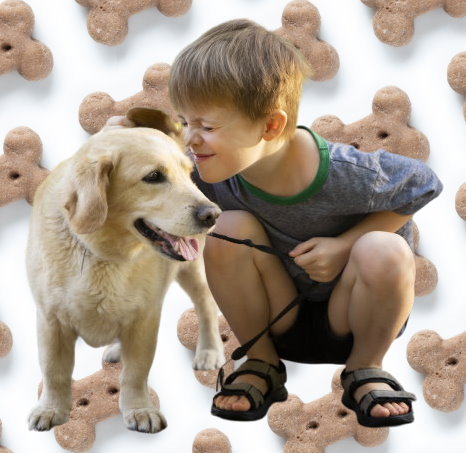Welcome to Dog Training Newbies !
Welcome to Dog Training Newbies !

Traveling with our furry friends can be a rewarding and enjoyable experience. Whether it's a road trip, a weekend getaway, or a vacation, having our dogs by our side adds an extra layer of companionship and fun. However, for a smooth and stress-free travel experience, it's important to ensure that our dogs are well-behaved and properly trained. In this article, we will explore some useful training tips to help your dog become a well-behaved travel companion.
START WITH BASIC OBEDIENCE TRAINING
Before embarking on any travel adventure, it's essential to establish a foundation of basic obedience training for your dog. This includes commands such as sit, stay, come, and heel. Basic obedience training not only helps in everyday life but also plays a crucial role when traveling.
When your dog understands and follows basic commands, it becomes easier to manage them in different settings and situations. It allows you to have control over their behavior, ensuring their safety and the safety of others during travel. Practice these commands regularly in various environments to reinforce their training and make them reliable travel companions.
FAMILIARIZE YOUR DOG WITH TRAVEL EQUIPMENT
Introduce your dog to the travel equipment they will encounter, such as crates, carriers, or seatbelts, well in advance of your trip. Make these items a positive and comfortable experience for your dog by associating them with rewards, treats, and praise.
Gradually acclimate your dog to the travel equipment by allowing them to explore and spend time in it. Start with short periods and gradually increase the duration. This helps your dog associate the equipment with positive experiences and reduces anxiety or stress associated with travel.
Additionally, if your dog will be traveling in a crate or carrier, ensure it is the appropriate size and provides ample ventilation. Make it a cozy and inviting space by adding familiar bedding or toys to help your dog feel secure and comfortable during the journey.
PRACTICE LEASH ETIQUETTE AND TRAVEL MANNERS
Proper leash etiquette is crucial when traveling with your dog. Invest time in leash training to ensure your dog walks calmly on a leash without pulling or lunging. This not only makes walks more enjoyable but also helps maintain control and safety in busy travel environments.
Practice loose-leash walking during regular walks, gradually increasing the distractions and challenges to simulate travel situations. Reward your dog for walking calmly beside you and redirect their attention if they become overly excited or distracted. Consistency and positive reinforcement are key to achieving leash manners and creating a well-behaved travel companion.
PLAN FOR REST STOPS AND POTTY BREAKS
Traveling often involves long hours on the road, and it's essential to plan for regular rest stops and potty breaks for your dog. Research and identify pet-friendly locations along your route where your dog can stretch their legs, relieve themselves, and get some fresh air.
During rest stops, reinforce good behavior by rewarding your dog for calm and relaxed behavior. This helps them associate rest stops with positive experiences and reduces the likelihood of restlessness or anxiety during travel.
It's also important to bring along waste bags and clean up after your dog to be a responsible pet owner and maintain a clean environment for others.


GRADUALLY INTRODUCE YOUR DOG TO TRAVEL EXPERIENCES
If your dog is not accustomed to traveling or has had negative experiences in the past, it's important to gradually introduce them to travel situations. Start with short trips to nearby destinations, allowing your dog to become familiar with the sights, sounds, and sensations of travel.
Observe your dog's behavior during these initial trips and address any signs of anxiety or stress. Use positive reinforcement techniques, such as treats, praise, and soothing words, to create positive associations with travel.
As your dog becomes more comfortable, gradually increase the duration and distance of your trips. This progressive exposure helps build their confidence and adaptability, making them more at ease with travel experiences.
CONSIDER PROFESSIONAL TRAINING OR ASSISTANCE
If you find that your dog struggles with certain behaviors or exhibits excessive anxiety during travel, seeking professional training or assistance can be beneficial. Professional trainers can provide customized guidance and techniques to address specific issues and help your dog become a well-behaved travel companion.
Additionally, there are specialized programs or classes that focus on travel training and preparing dogs for travel environments. These programs can provide valuable insights and strategies to ensure a smooth and enjoyable travel experience for both you and your dog.
In conclusion, training plays a vital role in ensuring your dog becomes a well-behaved travel companion. Basic obedience training, familiarization with travel equipment, leash etiquette, and gradual exposure to travel experiences are key components of preparing your dog for travel. Remember to be patient, consistent, and use positive reinforcement techniques throughout the training process. With the right training and preparation, your dog can accompany you on many adventures, creating lasting memories and strengthening the bond between you and your furry friend.